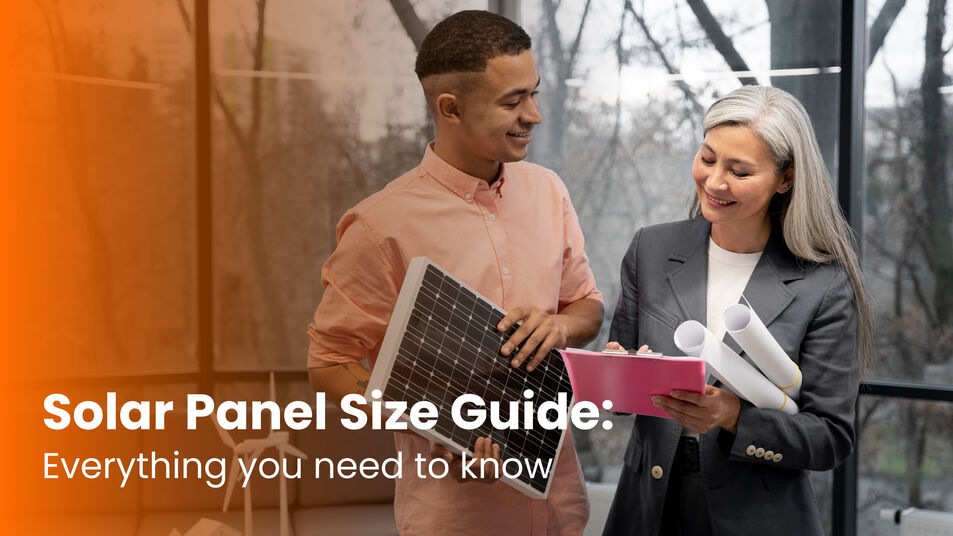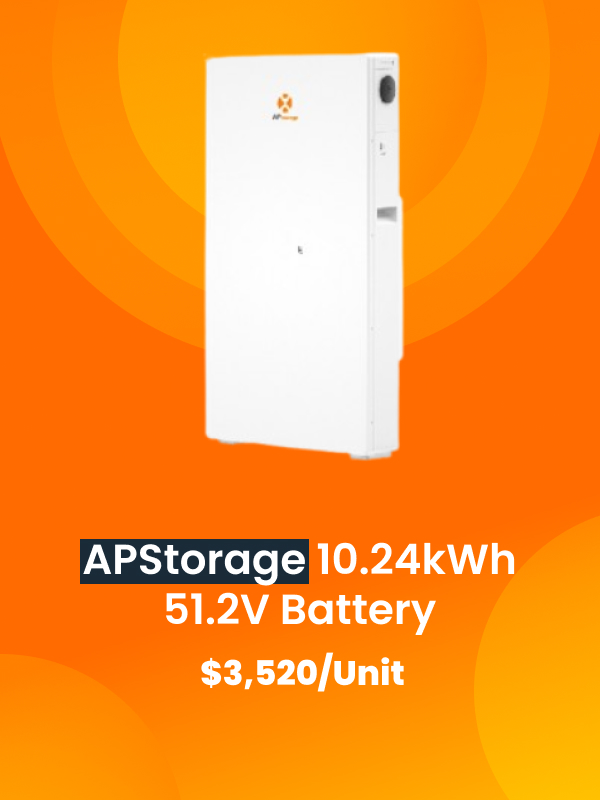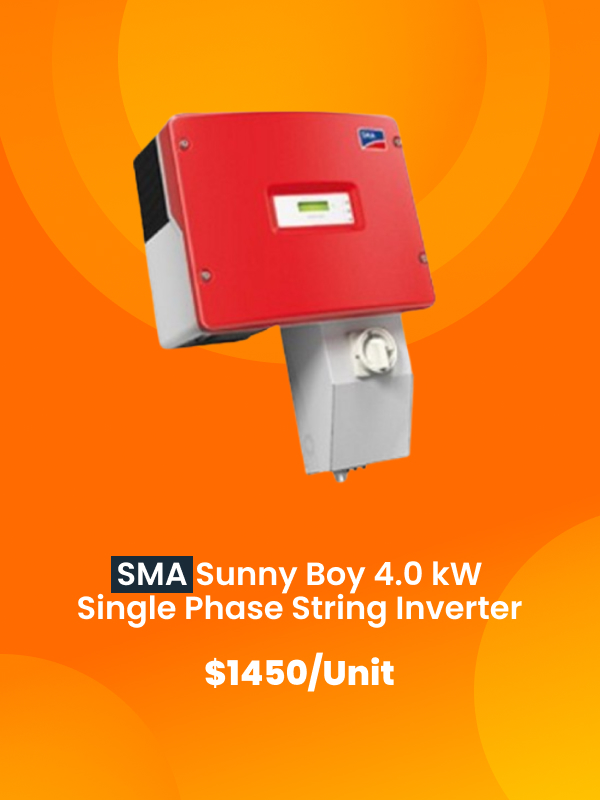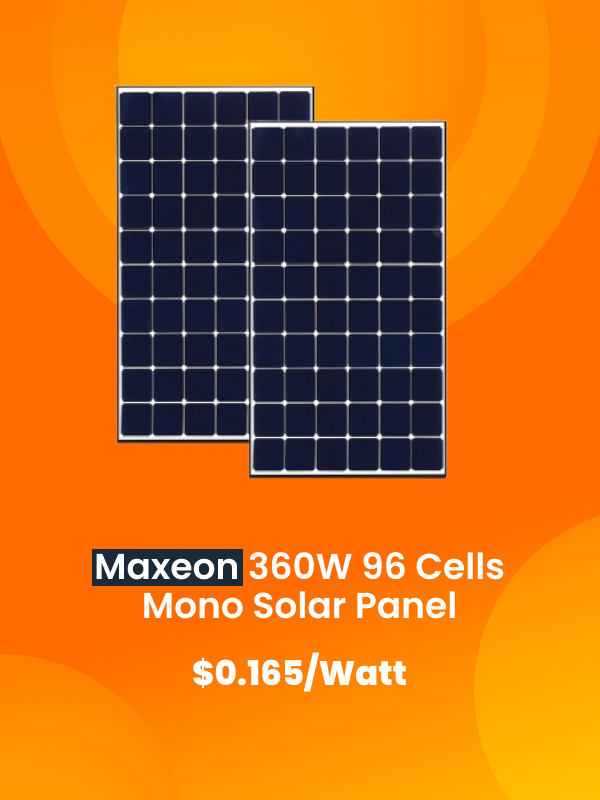One often-overlooked factor in the solar buying process is the size of the panels. Solar panel dimensions impact installation costs, safety, transport, and the overall footprint of your project. Understanding these factors helps you make smarter, more cost-efficient choices.
This guide breaks down solar panel dimensions to help you make an informed decision, whether you’re installing rooftop panels or large solar arrays.
Standard Solar Panel Sizes
Traditional rectangular crystalline solar panels come in two main types: commercial and residential. The key difference is that commercial panels are larger, with 12 additional cells, to meet higher power demands.
| Property | Residential | Commercial |
| Shape | Rectangular | Rectangular |
| Cells | 60 | 72 |
| Dimensions | 39″ x 65″ ( 3.25 ft x 5.5 ft) | 39” x 77” (3.25 ft x 6.42 ft) |
| Layout | 6 x 10 grid | 6 x12 |
| Weight | 42 pounds | 50 |
Solar Panel Weight
Most panels weigh between 40 and 50 pounds, depending on the model. It’s important to verify if your roof can support the weight. If not, ground-mounted systems may be a solution.
Average Solar Array Size
The average residential solar array consists of 15-25 panels, but commercial projects need many more, depending on the building size. Utility-scale projects can require thousands of panels.
Wattage
Panels range from 150W to over 500W. Commercial panels typically fall between 400W-500W, while residential panels are around 250W-400W. Utility-scale projects are now reaching 600W+.
Estimating Your Project’s Footprint
To calculate your rooftop system’s size:
- Calculate your daily electricity consumption.
- Use an irradiance calculator to estimate daily solar hours in your area.
- Multiply your daily usage by 120% for inefficiencies.
- Divide by the wattage of your chosen panels to estimate how many you’ll need.
- Multiply the number of panels by their dimensions, adding 4-7″ for spacing.
For ground-mounted projects, you’re limited only by the available space.
Other Panel Sizes (RVs/Boats)
Smaller panels, typically 100W-200W, are available for RVs and boats, where energy needs are lower.
The Bright Idea
Size, budget, and energy needs are all critical in choosing the right solar panels. Do your research, compare spec sheets, and consider talking to a solar expert to ensure you’re making the best investment.
For more information on selecting solar panels, contact our sales team today!




